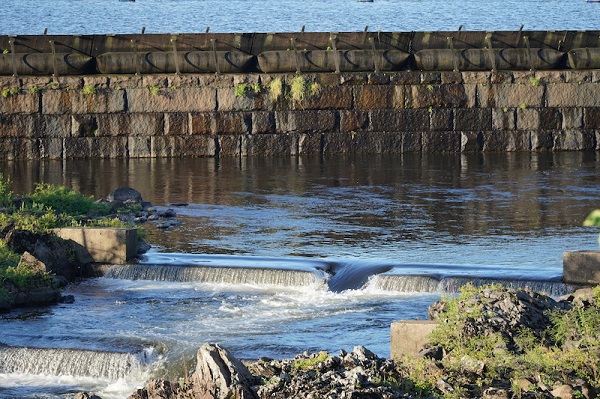MA Conservationists: Protect Riverfront Forests to Improve Water Quality

Lily Bohlke – Commonwealth News Service
LAWRENCE, Mass. — The U.S. Forest Service is partnering with a group of agencies and nonprofits to conserve water quality and forest health in the Merrimack River watershed.
The basin runs from New Hampshire down through Lowell and Lawrence, and out to the ocean in Newburyport.
It’s been identified as the number-one most threatened watershed in the nation because of forest land development.
Matthew Thorne, executive director of the Merrimack River Watershed Council, said converting what used to be forest and farmland into paved-over, impervious surfaces sends storm-water runoff straight into the river whenever it rains, polluting drinking water for some 600,000 people with nutrients, bacteria and other contaminants.
“And now, as we know, with climate change, in the Northeast we’re getting more frequent hard rainstorms,” Thorne explained. “And so they’re more intense, and they’re more often. And so that leads to really an increase in these stormwater events.”
A grant of roughly $250,000 from the U.S. Forest Service will allow the partnership to plant 18,000 trees along the basin, provide technical assistance and training to private landowners, and restore native habitats and buffers along key rivers and tributaries to protect water quality.
Thorne noted high levels of nutrients can lead to harmful algal blooms.
He added there is also the risk of sewer overflow events, when an influx of stormwater overwhelms the combined sewer system with too much volume for the treatment plant to handle, dumping storm-water combined with raw sewage straight into the river.
Lowell and Lawrence both rely on the Merrimack for part of their drinking-water supplies, so for Commonwealth residents, the conservation project is critical.
“It’s really a unique combination of looking out for our forests as they’re being affected by climate change, drought and flooding, and also using those forests to help protect our water supplies,” Thorne contended.
He pointed out the program will also improve the outdoor recreation experience in Massachusetts for the paddlers, hikers, bikers, fishers and boaters that use the Merrimack River and its watershed area.
